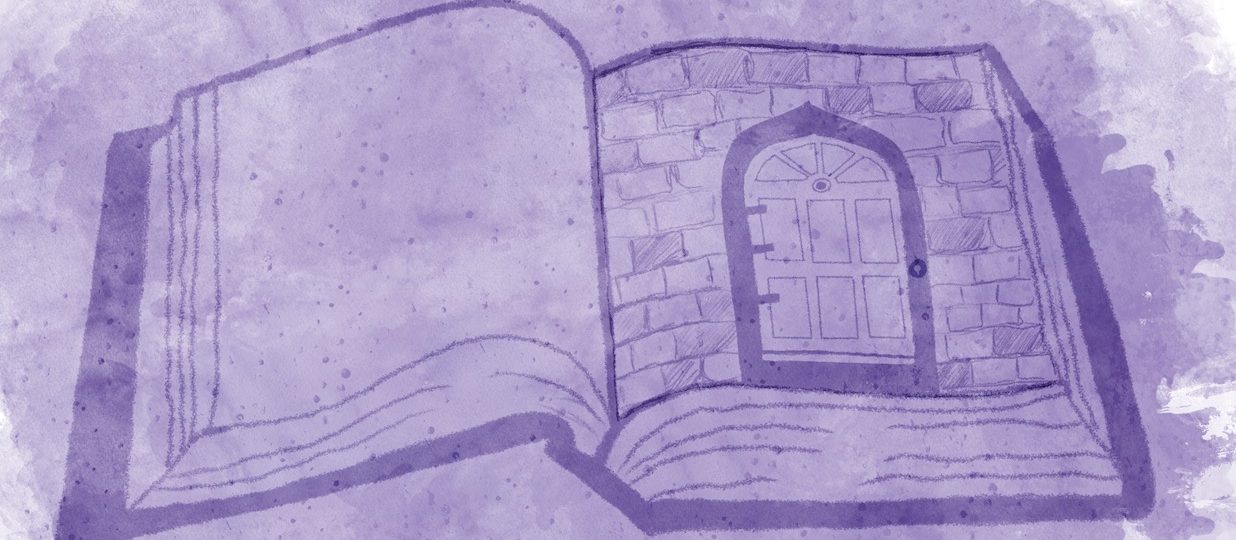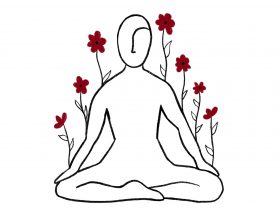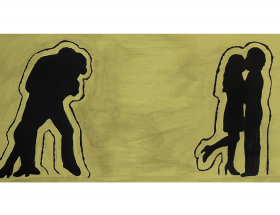Dusk is a transitional time, an unstable time. Dusk is when the edges of the day find themselves dissolving into the night, a time when nothing is certain and the light changes so quickly you wouldn’t notice when exactly blue replaced gold. Things visible in the day become hazy, and the fleeting magic obscured by daylight takes firmer root: the pile of laundry suddenly looks like it could come to life; something rustles outside the window; a looming figure takes shape behind the door, only to be gone when you look at it closely.
Magic happens in transitions, in the in-betweens: at dusk, in autumn, in the scene-changes. There is magic in the hush that falls over an audience when the lights go out, but the curtain hasn’t risen. There is magic in the walk to the party, when the night hasn’t started but you can feel its possibilities. There is magic in the way a book’s spine cracks when you open it for the first time, and there is magic in the moments just before beginnings: before first days of school, first steps, first kisses.
Folklore and fairy-tales know this magic well: secret doorways never reveal themselves in broad daylight, and valuable keys or answers to riddles lose their mystery in the sun. Fairies and other magical creatures live in-between. There are spirits that live in in doorways, neither outside nor inside, and fairies that live at the bottoms of gardens, neither in the wild woods nor with people. Sea monsters often make their acquaintance with people on beaches or riverbanks, not in the water but not quite on land. The magic of transition is strong enough that entire creatures take life from it: they thrive off the magic of change, the time of anticipation of nothing in particular and everything all at once.
These transitional times and spaces are often guarded: there are guardians at any bridge a hero needs to cross, and there are creatures that protect every river. An angry troll needs to ask the hero ‘questions three’, or on knight needs to duel the other, who stands guard of the bridge, who has killed everyone who came before him. Cerberus guards the entrance to the Underworld, and riddled runes guard the entrance to Moria. The greater the hero’s struggle, the greater the listener’s anticipation: the magic of the transition is amplified. These transitional moments become more important in the way they are protected, in the way we aren’t allowed easy access to them, in the way we anticipate the hero’s victory before they won. The longer we spend in the doorway, just before we go in, the more magical the beginning feels.
Instead of a guardian, many mythical traditions have a figure that represents this in-between time: a spirit of the doorway, a trickster who is neither good nor evil, belonging neither to one town nor the other. They roam freely throughout the land, throughout the story, belonging to nobody while being involved with everyone. They are always depicted travelling, they are always in transition from one place to another: Hermes, Mercury, Loki, Puck… They thrive off the magic of the in-between, off of the suspense, the anticipation, and all of their tricks are to prolong this time of uncertainty. They are neither good nor malicious: they live for the transitions, not for the main event.
The feeling of anticipation is where the worlds of magic and reality overlap. There is a familiar feeling a person gets at any age when someone begins to tell a story. The feeling of slipping into the story, despite either knowing what will happen, or knowing that it will make you laugh or cry. We slip into these stories nonetheless, we let go, we allow ourselves to be carried away by them precisely because we anticipate their endings, we anticipate being taken on the highs and lows, on the lessons we will learn, on the jokes we will steal… Anticipation is something everyone experiences from early childhood, when everything is a beginning, when everything is new but we learn how to anticipate certain outcomes, certain constants in the world. Perhaps the main magic of any story, but particularly of a folktale, is in reminding us to chase anticipation, to take an unknown route home, to take a left where we normally take a right, to transition, to change, to anticipate. They remind us that magic lies between what is, and what we expect. Anticipation and transition are inextricable from each other: a transitional time cannot exist without anticipation, and the first tingles of anticipation mark the beginning of transition. Folklore reminds us to embrace the transitional space, where the real becomes unreal, and magic descends onto reality.

Art by Ananya Jain




